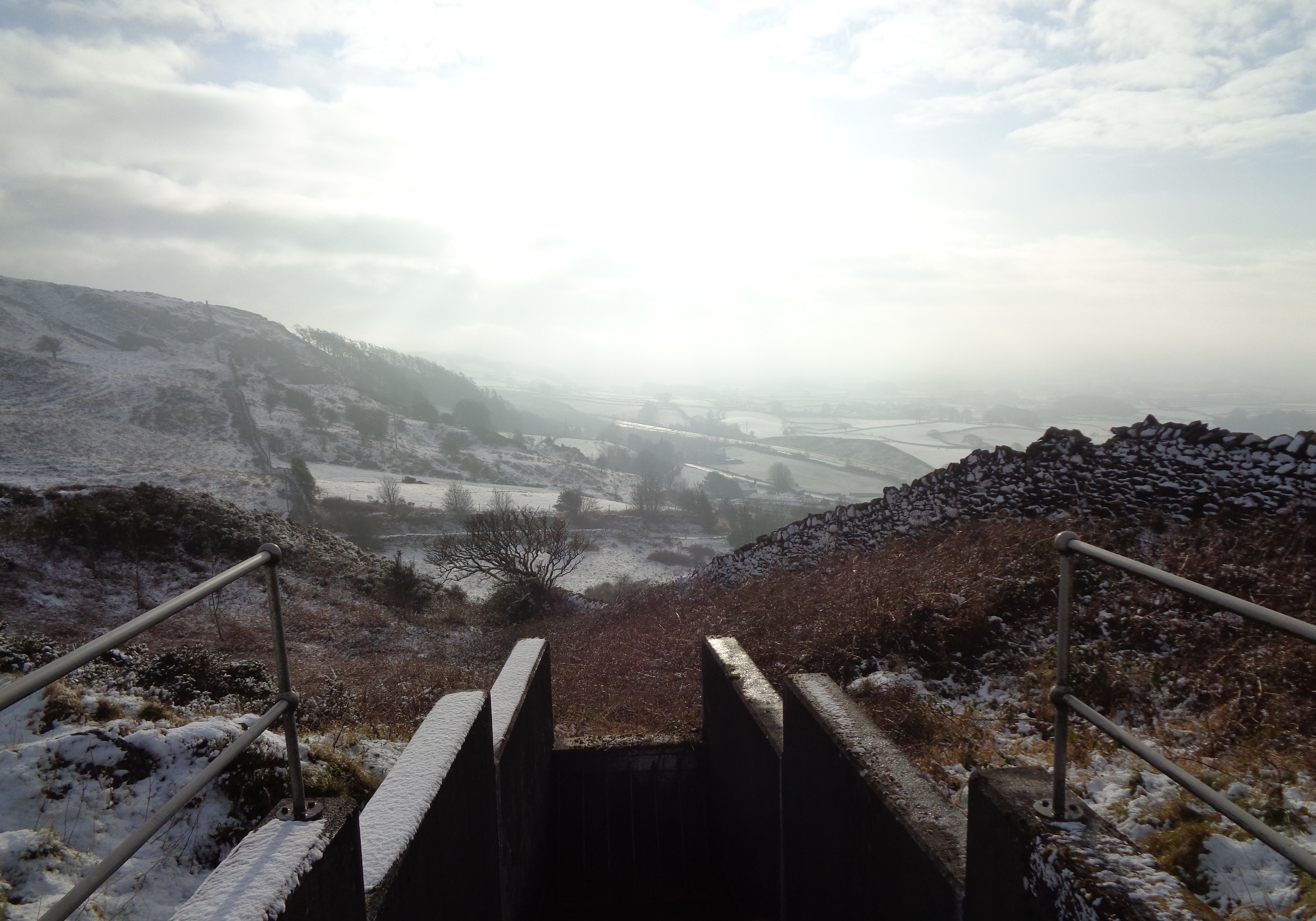
From High Newton reservoir number 1, January 9th 2021
Just a few days ago, not entirely out of the blue and amidst the coldest fortnight for a long time, we received a notice to quit. Although – to be fair – we’ve been given a few months to do this, it comes at a point when we were beginning to see light at the end of a tunnel. Now, after two and a half years, all K’s work to sort various pieces of complex administration regarding our youngest children and school, has been virtually reversed. We will be back to square one. As I warned a few family and friends, my communications may become more erratic and aggressively worded!
No doubt we are better off than countless thousands in this northern county alone – for whom, like us, it’s only the truth to say, that in winter, much of the time, we survive rather than live.
Although our house is not without its defects, we had come to love it for its windows and light. By modern criteria, perhaps due to all its glass and high ceilings, to heat it to a comfortable level of 13 or 14 degrees (we should all be wearing jumpers indoors in winter) would be worse than uneconomic, it would be an ecological insult. The two attic bedrooms are uninhabitable for almost half the year: too cold for four months; stifling for two. The west facing render in particular, for all that it looks convincing, is no longer waterproof, while being built on a marsh, the house attracts constant rising damp. If sea-level rise predictions are even slightly correct, before long the house will be under the tides.
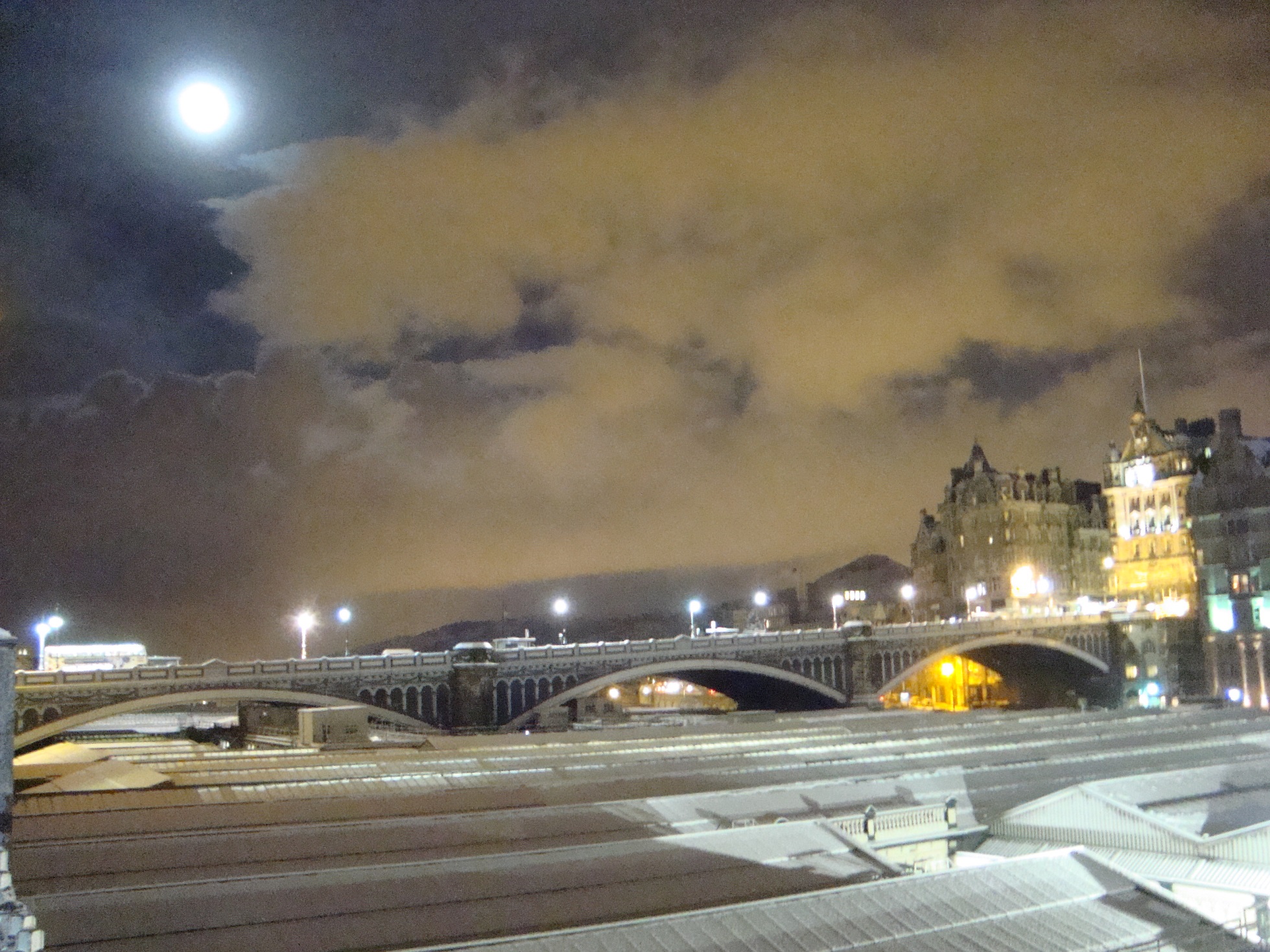
Unearthly Edinburgh, 19th December 2010
Reading the superlative Municipal Dreams by John Broughton[i], (who describes himself near the end of his book as “a Labour foot soldier in the dark years of Thatcherism”[ii]) I was reminded of a world with far better intentions towards housing the less wealthy. Also, of a world where conscience was more to the fore. That William Beveridge’s report of 1942, ‘Social Insurance and Allied Services’ (described by Broughton as a “rather dry and bureaucratic tome”) could sell 630,000 copies in the middle of a war, puts us to shame!
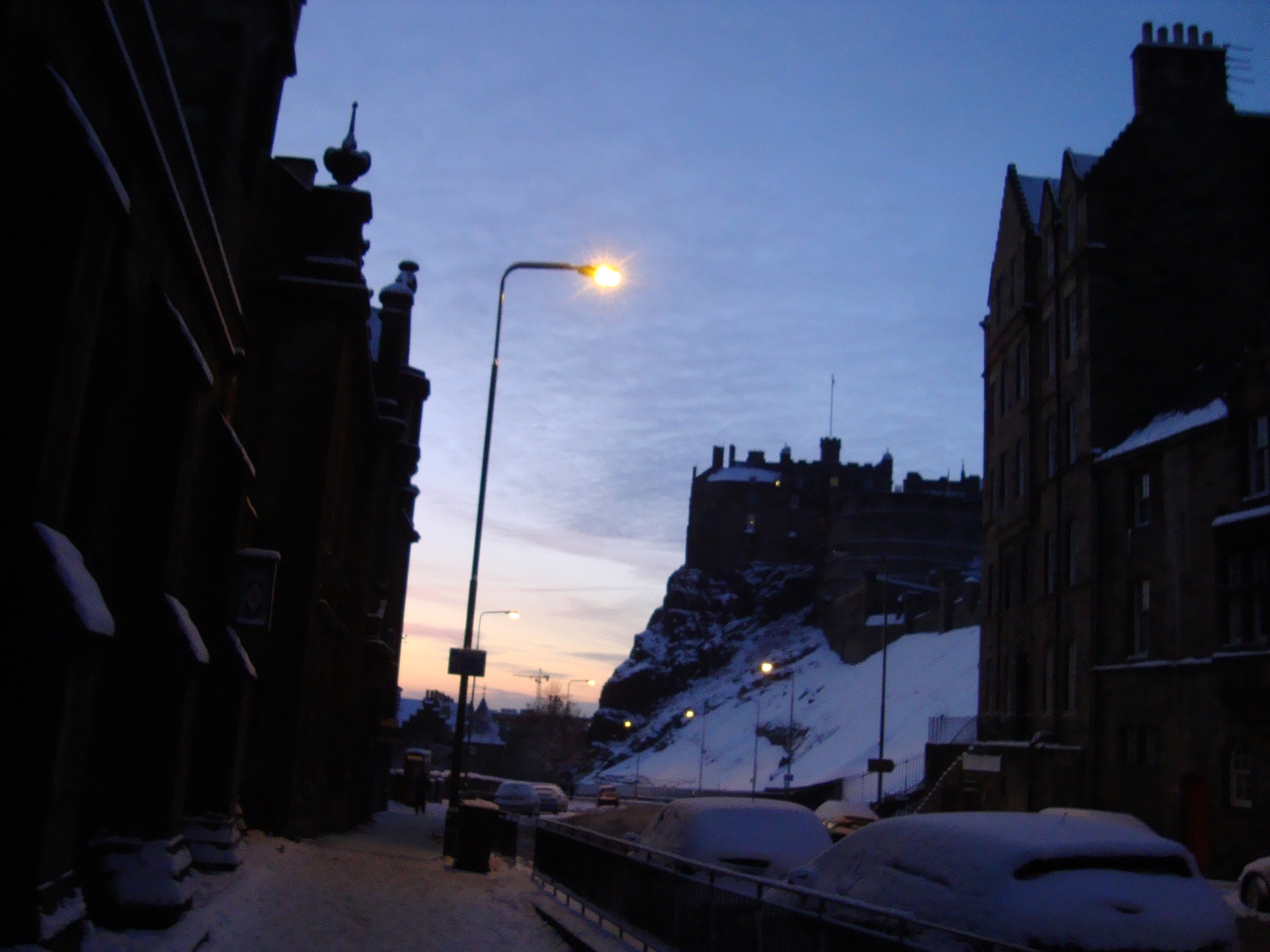
Edinburgh, 19th December 2010
For my first sixteen years of life I lived in council property. Initially a very old house in London, later a newly built semi on the edge of a Buckinghamshire town. Getting a council house these days is virtually impossible. What a waste that the power to requisition empty properties for council use, granted in 1939[iii] as the war began “but maintained through the post-war housing crisis”, wasn’t retained long term. Inevitably the Conservatives (“with greater care for the interests of property” as Broughton so tactfully phrases it) put paid to this in 1955, no doubt concerned at the terrible plight of their rich cronies. Without council housing, these days the most reliable option if you don’t want to be pestered, is (or was), the big, privately owned, rural estates – whose houses and cottages were reasonably priced if situated in the middle of nowhere. Remaining highly suspicious of private, individual landlords, eventually we ran out of options. Generally, with the rural estates, once you were in, they might not do anything, but at least they left you alone. Or perhaps we were lucky? That was why we stayed 13 years in the same North Devon house.
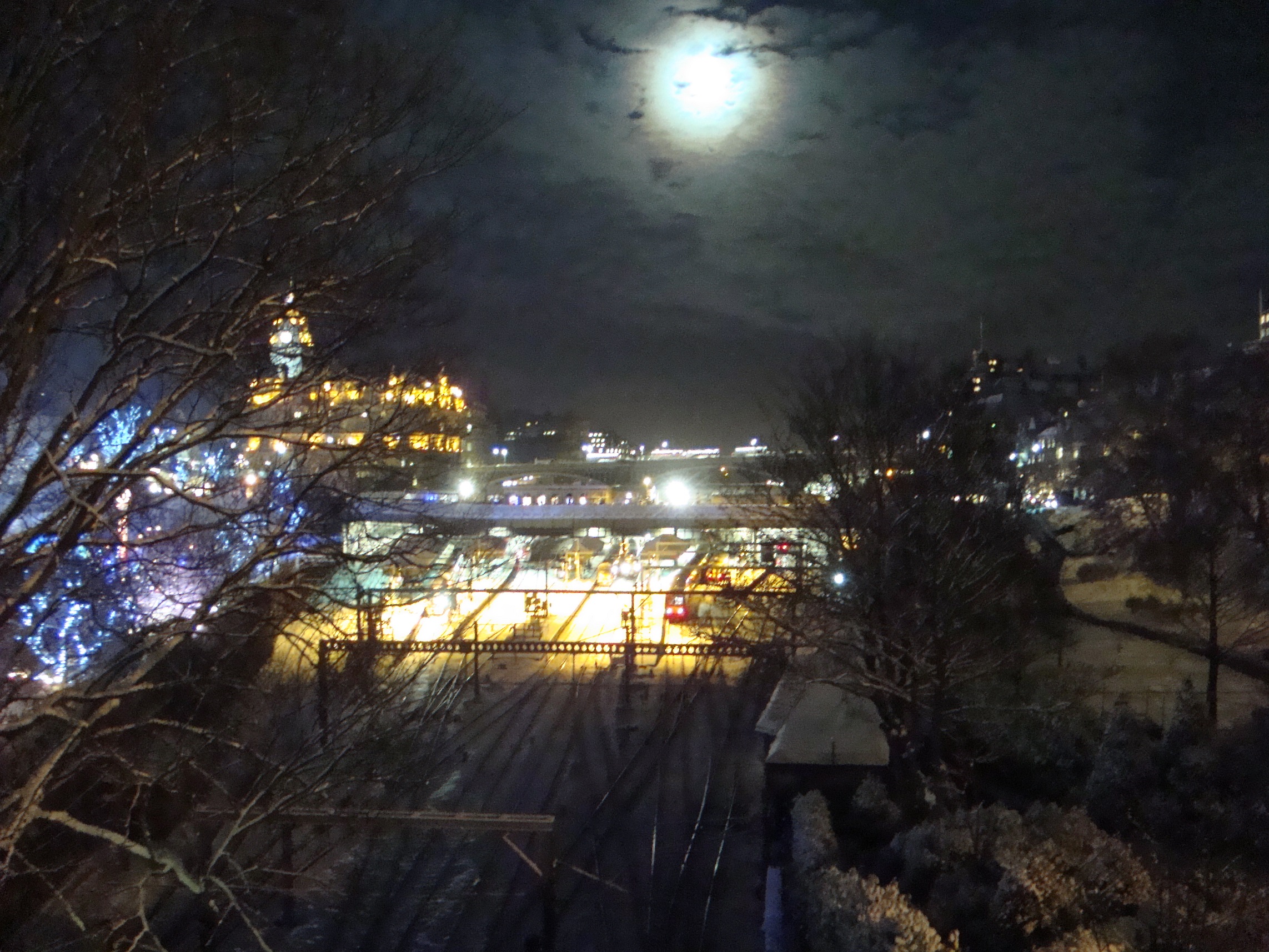
Edinburgh Waverley, 20th December 2010
In the no man’s land of winter shoots, against the rain of falling shot and crash-diving pheasants[iv], you had to wear a thick hat and keep your eyes shut when hanging out washing. This was perhaps what kept our Devonshire rent fixed? Then, one day, the immersion tank started to leak. Eventually the estate plumber turned up, a new man appalled to discover our glorious treasury of Bakelite switches[v] and ancient wiring. Much of this, dating back to the 1930s, was more than 60 years old. A rambling four-bedroom house built largely of cob, the whole of the upstairs had only two plug sockets. The place had become an “illegal liability”. It would require a complete rewire . . . after which disruption, no doubt the rent would increase. It was time to move on.
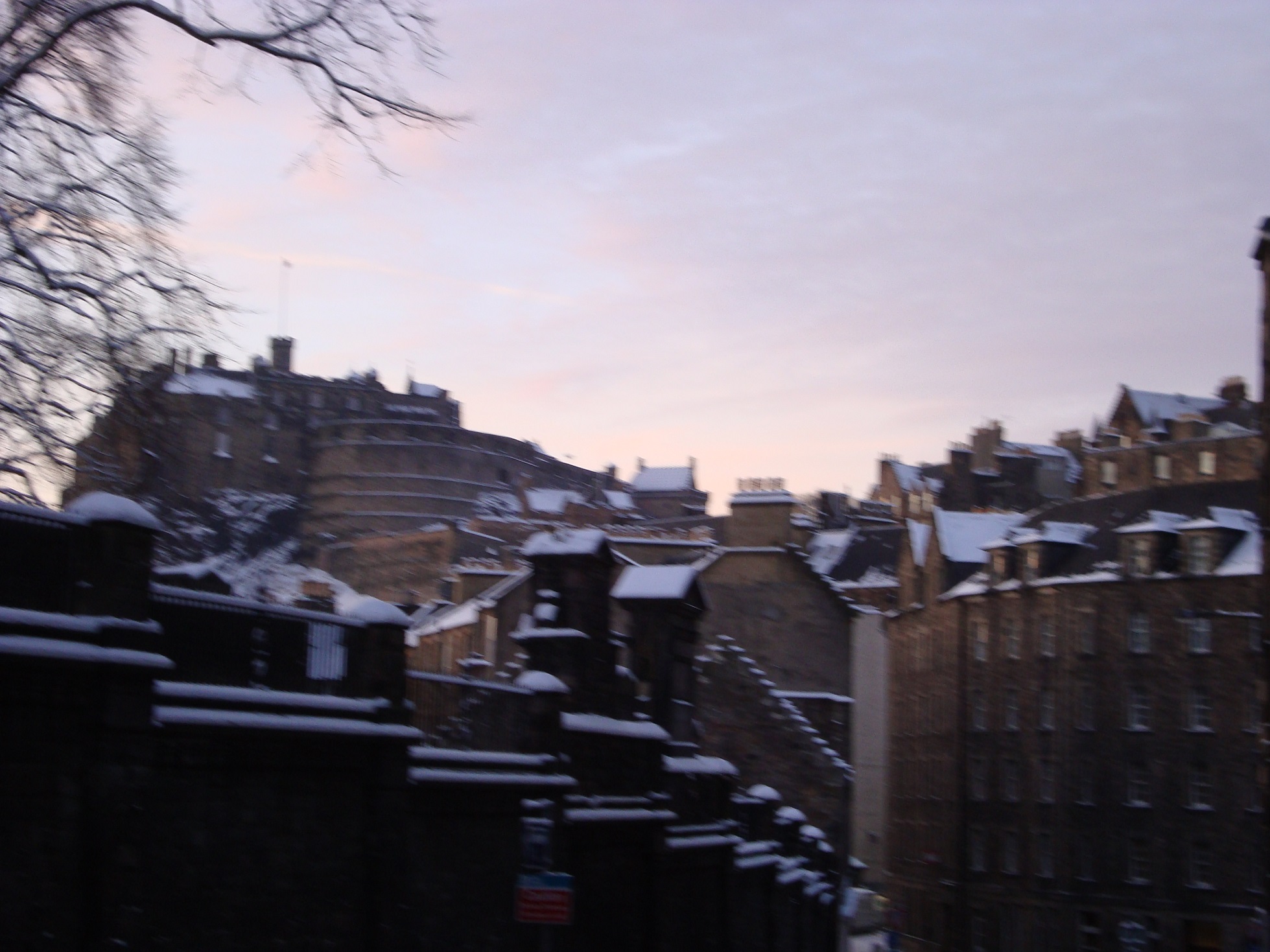
The next house we lived, was also owned by an estate, this time in Northumberland. Were they suffering from rural depopulation to advertise so nationally? Or was the house haunted by a desolated farmer or mining captain (instead of the grouchy seaman of Gull Cottage in the Ghost and Mrs Muir[vi]).
Involving an almost 800-mile round trip to see it, was a reckless gamble. But the head of the estate was keen on families . . . and the atmosphere of the house open and friendly. Naturally, it proved utterly unheatable. If you were more than 10 feet from the fire, the average winter temperature was 7 to 10 degrees. Sometimes it was warmer outside. The boiler simply had no effect. Our bedroom frequently went down to 4 degrees at night while our elder son in the loft had to tolerate minus 1 on several occasions. Despite double glazing, the wind just went straight through that house – and sometimes in south-westerly gales, the rain as well[vii]. The area was reputed to be windier than Cape Horn – though at least we didn’t have the wave-thrashed ocean to contend with. But it was a great place to be, the light extraordinary, the landscape unforgettable. For the first two winters, we were snowed in for more than five weeks. After North Devon, that Northumberland house came the closest to becoming a home – and we stayed seven years. Previous tenants lasted a year on average. One winter in other words.
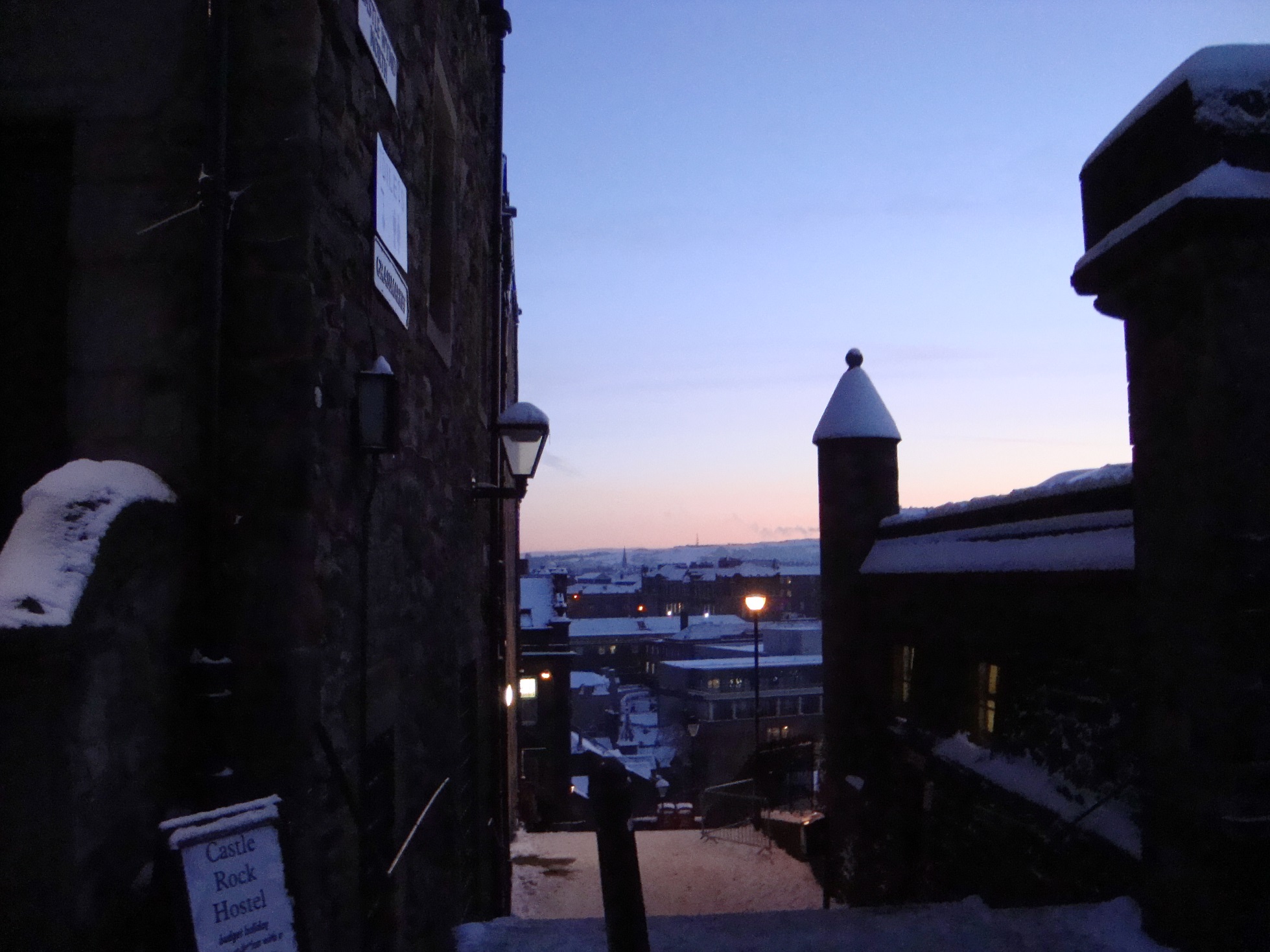
As happens every winter, despite two big dehumidifiers doing their best, at our current house the mould is taking over. Supposedly renovated not long ago, done up as all too many rented places are these days, to give a transient appearance of luxury – this skin-deep wash of (usually) magnolia, is merely an excuse to bump-up the rent. A pit of pointing, a roof check perhaps, then internal decoration, preferably in spring. The decorators know it’s totally superficial, but when the inevitable damp and mould return with autumn, the tenant becomes responsible. And when the tenancy ends, unless five or more years have passed, the tenant takes the blame. The cost of the next round of camouflage can be taken from their deposit.
Living on a rural estate can be reminiscent of that noxious hymn, All things Bright and Beautiful[viii], with its now usually suppressed third verse: “The rich man in his castle /The poor man at his gate / God made them, high and lowly / And ordered their estate”. Like the queasy situation of Government and Subjects, in Northumberland, the tenants talked about the landlord behind their back, cursing their uselessness without ever considering rebellion, despite the general feeling of being a mass of peasants versus a handful of bastards. Realistically though, if you were happy to improvise your own repairs and improvements, the squires and their minions were content to ignore you, which always suited us. Plus, the houses looked real inside.
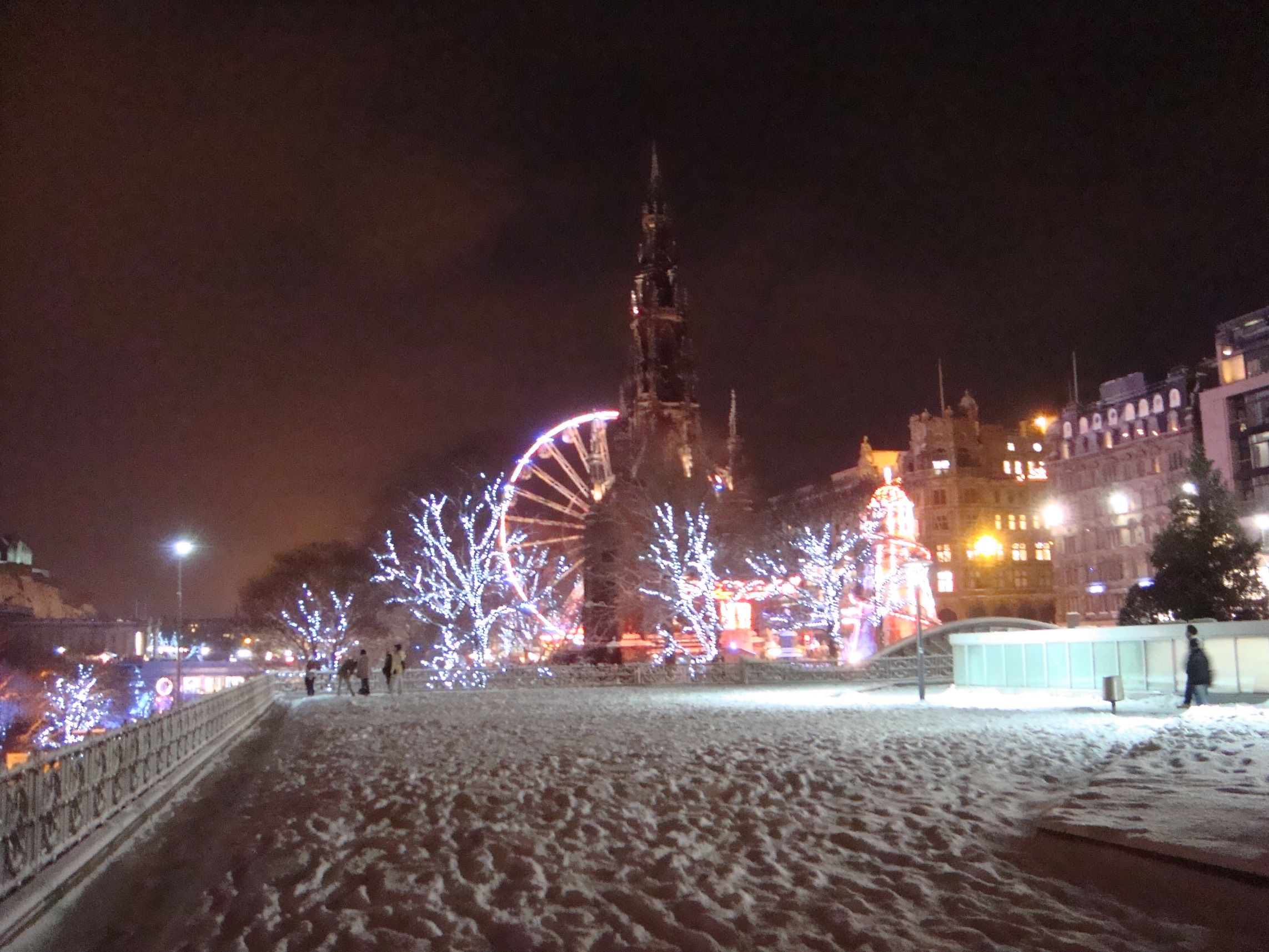
Unearthly Edinburgh, 19th December 2010
Private landlords are just not the same. It always feels like they’re breathing down your neck, calculating whether or not they can make more money by swapping you for a wealthier or more absent dupe. Many large estates I expect now operate similarly, though I’m sure there are honourable exceptions . . .
Our current kitchen is fitted with a stylish sink-surround made in wood – designed to look good forever . . . as long as you don’t use it. The new dishwasher, never turned on, was no inducement to us, though it is the perfect place to store unopened packets of cereal. We keep our coal in the bath of course.
Trying to be positive, obviously we should see our notice to quit as an opportunity . . . If we had the money . . . If it wasn’t the beginning of lockdown number three . . . If there was much chance of finding somewhere better (or just somewhere without a wooden draining board) . . . If stupid Brexit hadn’t stopped us from moving abroad . . . If we had no family . . . If we were dead! . . .
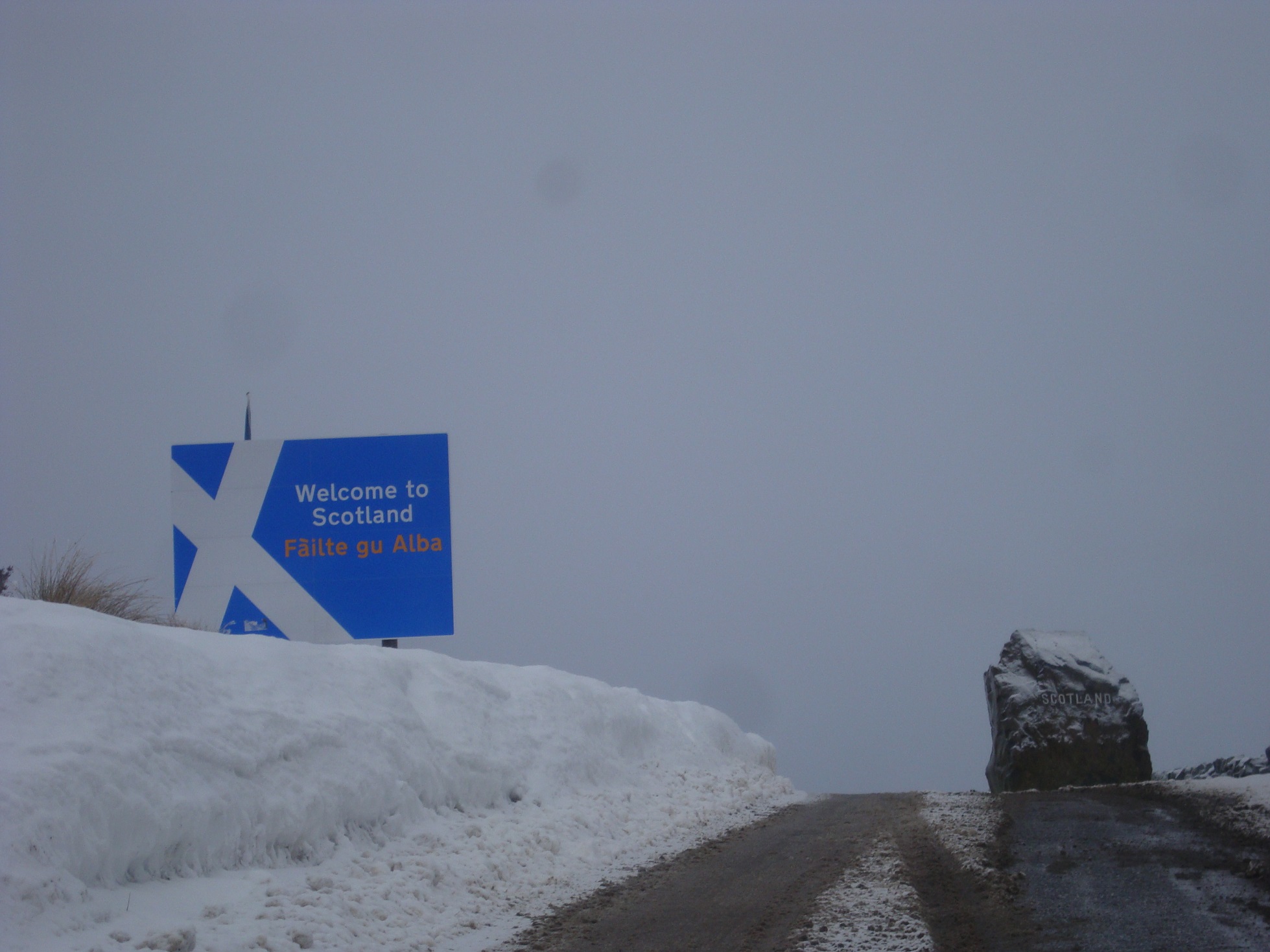
Carter Bar, 19th December 2010
Another advantage of our remote house amid the Northumberland moors, was the possibility of journeying into Scotland and Edinburgh – probably our favourite city. One pre-Christmas we booked a cheap Travelodge room on its southern edge. It was a long walk into the centre in snow and ice, but the room was a generously sized corner one with space for an extra child on the floor. As it turned out, severe winter weather made this trip almost impossible. Only after some furious digging were we able to get our 45-year-old Triumph through the drifts concealing the track to the lane. When the snowfall worsened nearing the border, we were on the point of turning back. Following a snowplough up to the blue sign and the monolith which designate Scotland, we descended very carefully beyond – since the plough, belonging to England, had stopped at the summit and turned around.
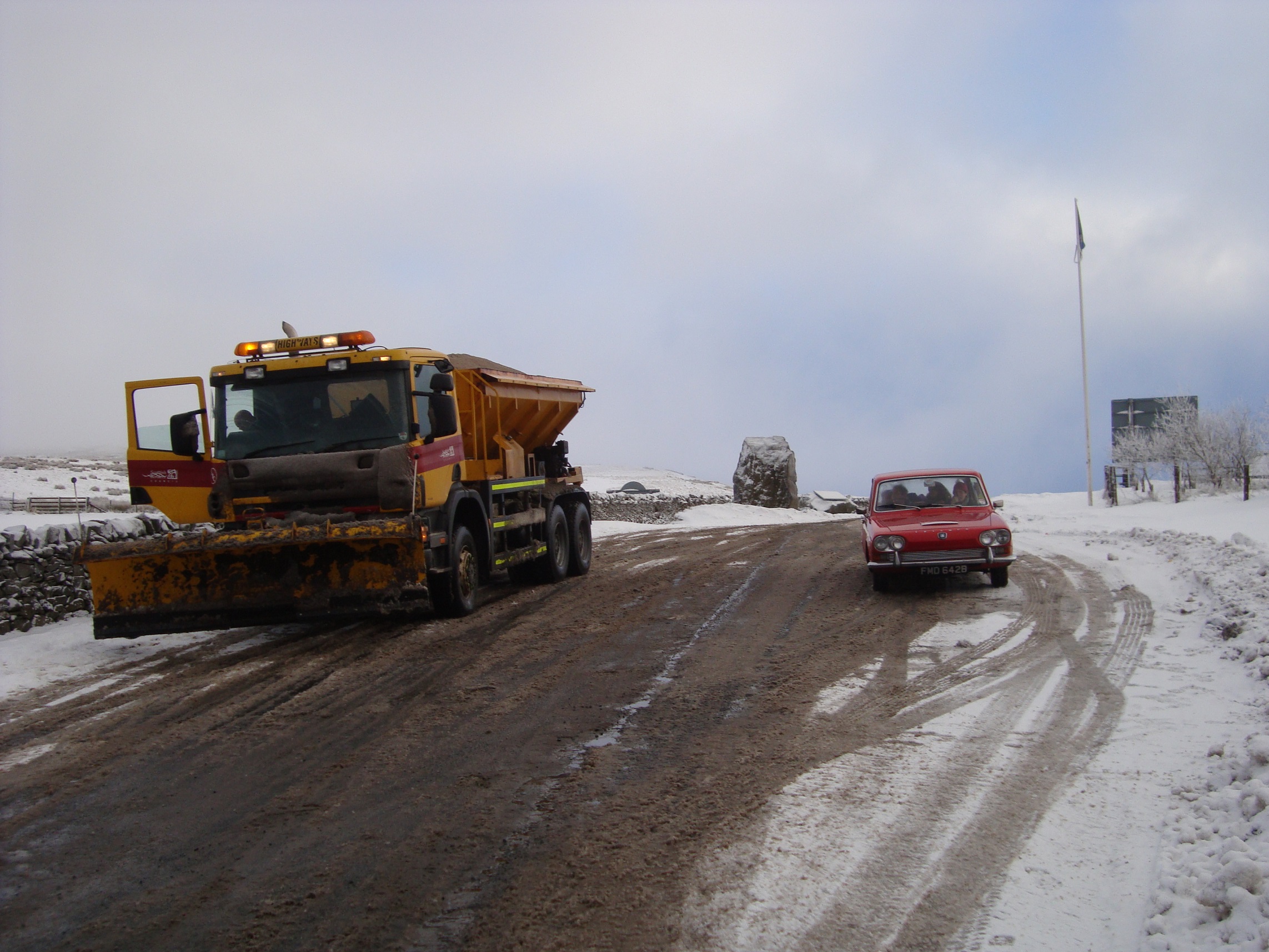
Carter Bar, 19th December 2010
The Travelodge itself radiated a feeling of siege, only a few guests turning up. Soon the red Triumph was buried in white. But as some of the photos here show, this was a trip of a lifetime, well worth every skidding loss of traction and twinge of frostbite! The magnificence of Edinburgh was escalated to something almost hard to believe – beautiful, evocative, unearthly. Our return journey was calmer, though just as cold, the wipers seizing across the high moors. For miles we saw no other vehicle but a removals van of all things. We worried that even if the border wasn’t closed, and the A68 with its fierce dips and blind summits[ix] remained navigable, we’d never get back up our rocky track. In the event, we only managed this by shovelling a narrow passage and then charging the slope at about 40 miles an hour, just making the bend before the car began to slip. Fortunately, there the track flattens out and with the help of some loose grit (not salt), we made it home.
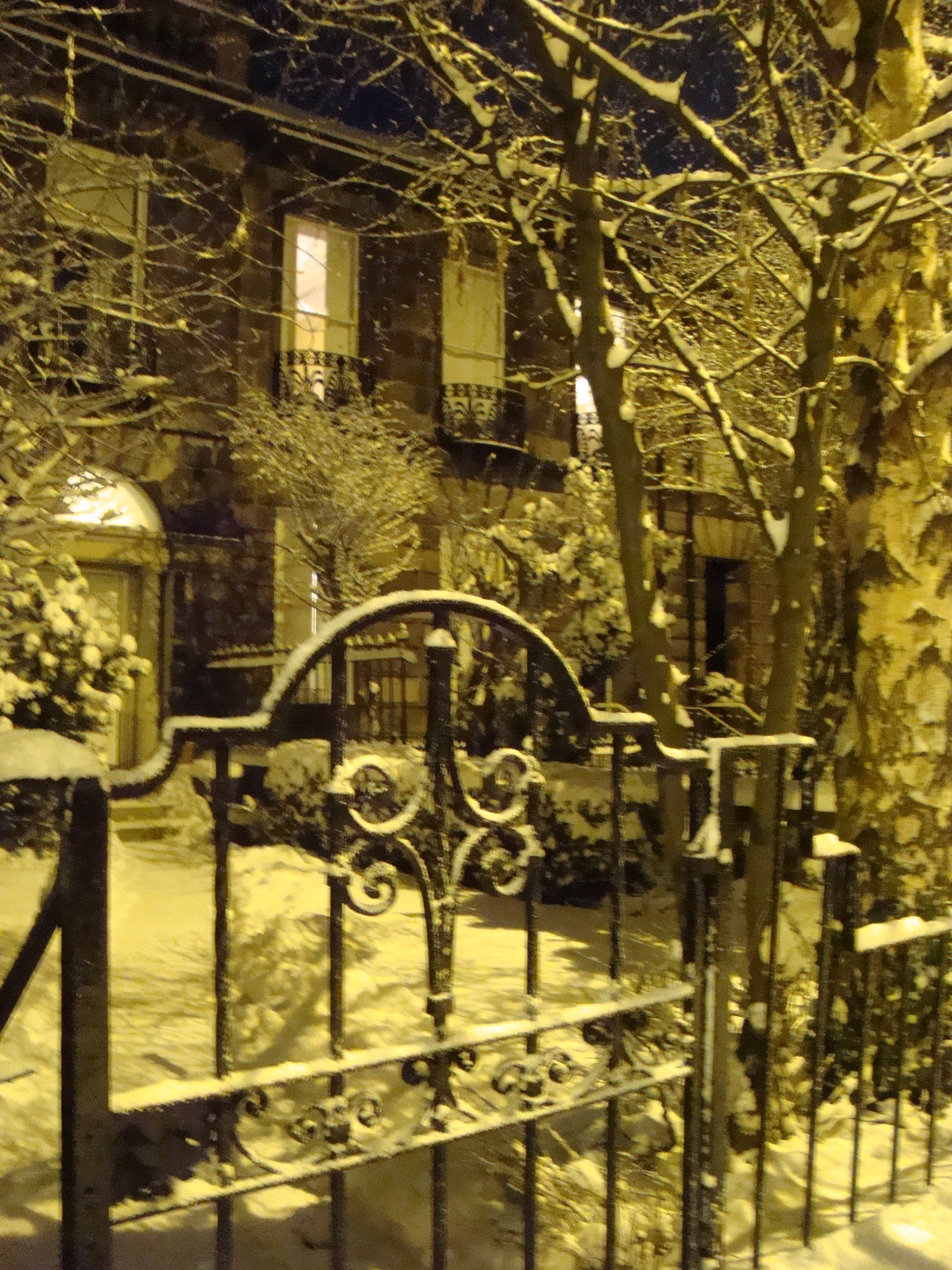
Edinburgh, 19th December 2010
Which returns me[x] to the almost universal desire for a stable home – as well as the often ill-considered slogan urging us to “live in the moment”. Both apparently conflicting desires can easily be corrupted by the competitive Big Grab we live in. Both can contribute to the death of conscience. Moving house is extremely wasteful of both time and money, yet when it’s chosen, it’s possible to remain driven, even enthusiastic. A new environment is always stimulating to living in the present, however misguided or half-baked that notion is. Yet the whole moving process, the sorting and lugging (which we always do ourselves), the reams of paperwork, the psychological resettlement, all these things and countless others, often destroy the sense of a fresh start – destroy the peace of mind necessary to learn anything from its moments. Though I naturally endorse the aspiration behind the notion of living in this hypothetical moment, how long is a moment. A day, an hour, a minute? And how easy is it to reach exuberance or flawless spontaneity without stumbling upon or lighting the fuse of the headless chicken? The concept is largely a rhetorical idealisation. Barring the visionary-type experience there are no such isolated moments . . . and the true visionary ‘moment’ is about all moments eternally. It can only be labelled a ‘moment’ once circumscribed in retrospect. Carpe Diem wisely hedges its bets . . . and in any case isn’t quite the same thing. So what moments are aspirants thinking of? The ecstasy on the dance floor? The perfect family Christmas dinner? Love blooming by a rainy harbour? All these examples are justified and can have a high value, but they only exist through longing, memory and anticipation, through hope and trust. It’s these before and after connections, which turn water into wine. Relaxing by ‘going with the flow’ or surrendering to nothingness can also be valid – though probably closer, like so many other ecstasies, to dying in the moment? Hedonism itself is a form of recklessness unto death – justified perhaps in the current human situation – but rarely the ground base for anything worthwhile. So many of those higher moments we love, while they may seem to crystallise as a ‘moment’ are in fact vitally based on our history, our being at ease with a group of friends, or alone with a better-known self – our personality, our consciousness in reference to the world around. All these moments depend upon past and future.
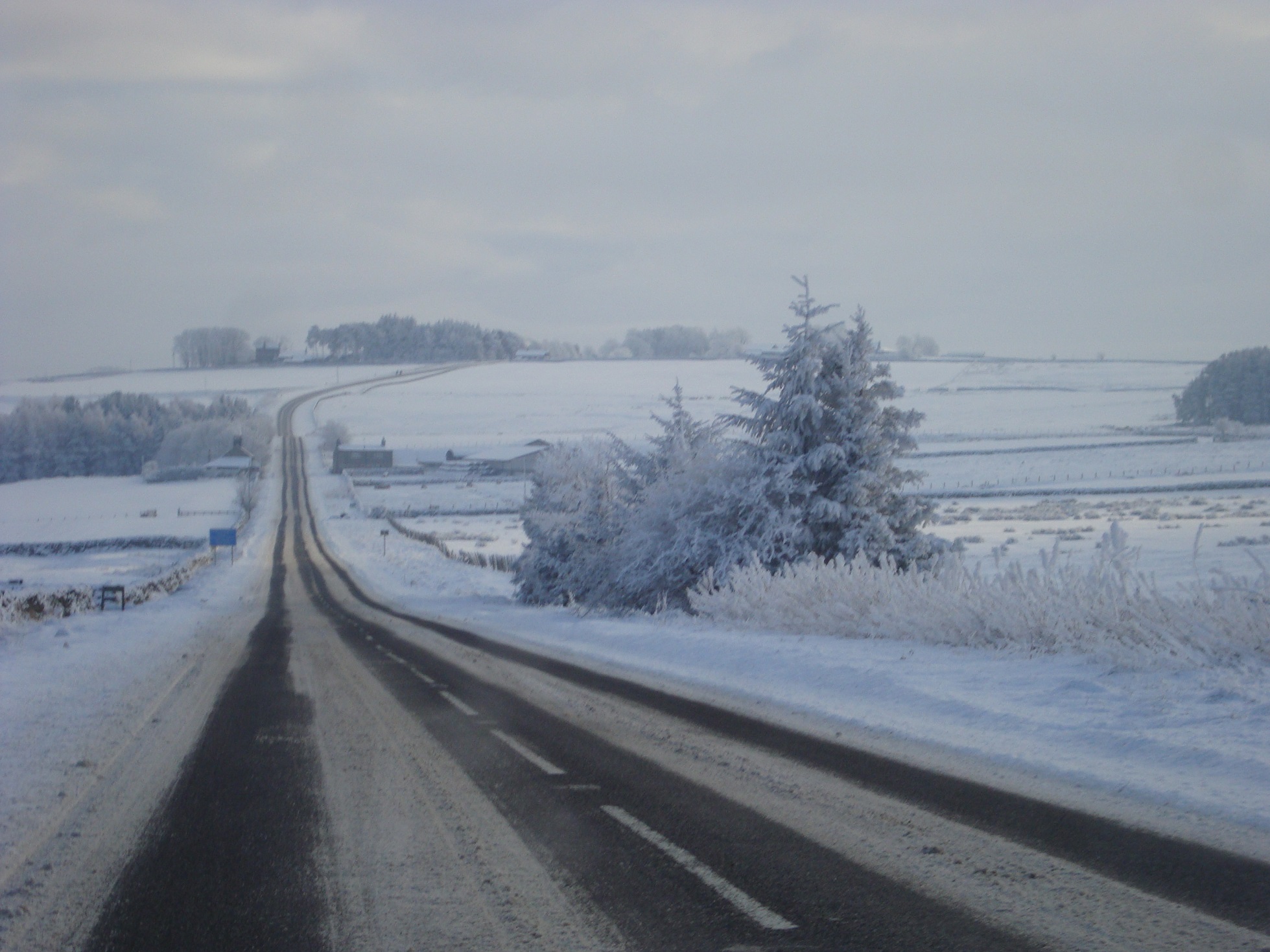
Return journey to a home that no longer exists 21st December 2010
A week or two afterwards, by mid-January, already the idea of the festive season can seem stale. Yet if it worked, expectancy and contrast, will have been the major reason – with food and drink providing a useful contribution. It’s a frosty walk that makes the fireside glow, and the memory of home (if you’re lucky enough to have one), the anticipation of return, that heightens the journey. The garbled traditions[xi] stretch back to the beginning of recorded time and forward to the promise of the future.
At the moment it’s impossible to say where we will be next Christmas – as a race or as a family. A state only worsened by a lack of conscience and communication.
The excuse for our notice is (inevitably) the covid fiasco, but thanks to a tradition of restricted communication between landlord and tenant it can only come across to us as a rich person’s whim. There could be more to it than that. But if they had cared to ask about or understand our situation . . . or explain theirs, either communication might have forestalled the rebirth of class conflict or resentment. Not that it’s a case of class here, just of money. If the situation were reversed, if our ancestors had bashed theirs on the head, instead of the other way around, would we have grown as lacking in conscience? As it is, I think I’d find it hard to be so unthinking towards even the most impoverished criminal or aristocratic parasite[xii].
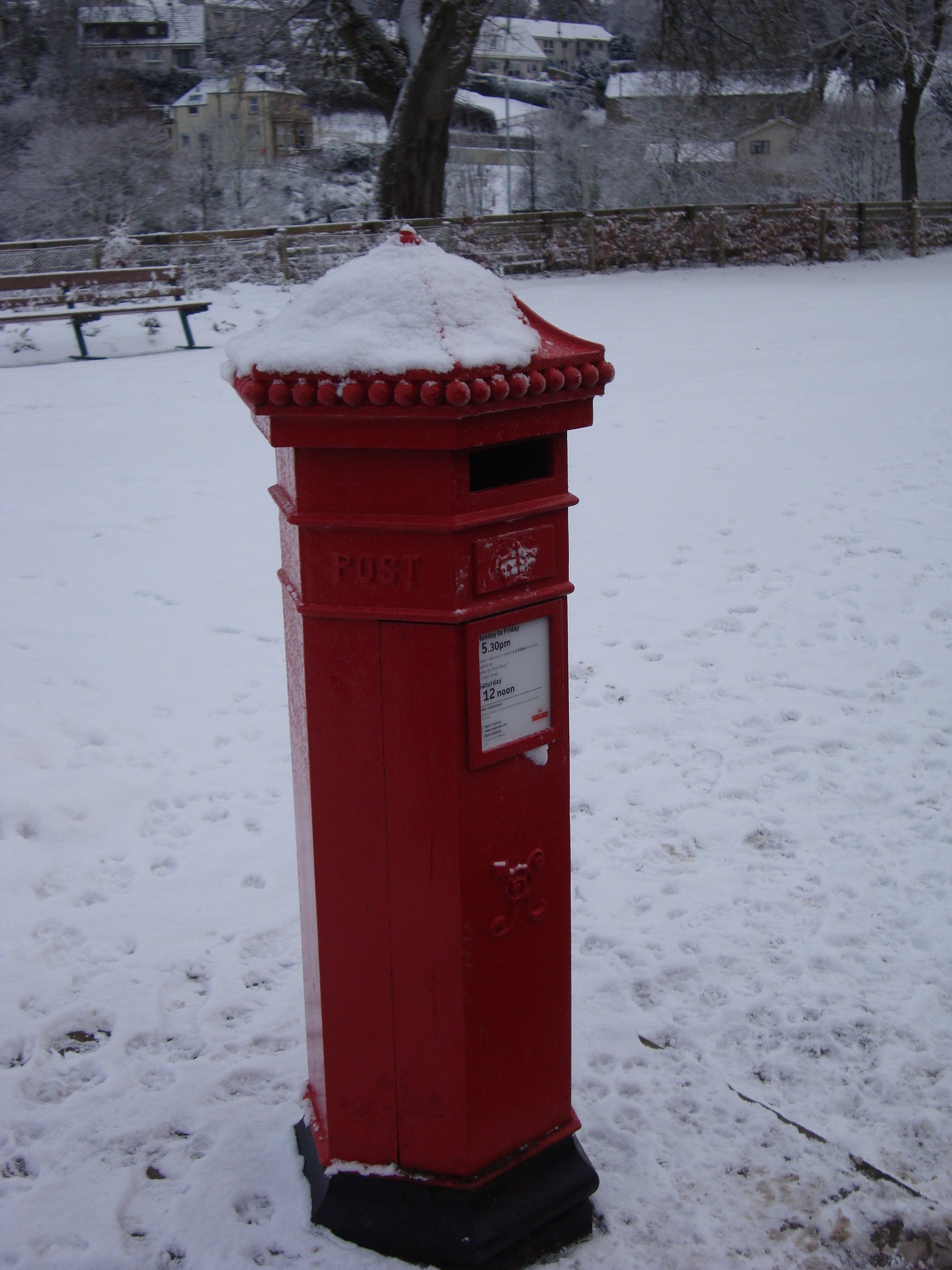
Jedburgh post box, 21st December 2010
Unfortunately, the Good Law Project[xiii] from whom I receive regular communiqués, has its work cut out, since so many laws (generally made for the rich at the expense of the poor), abet the death of conscience. I was reminded of the idea of the death of human conscience, by some lines in Shabby Tiger[xiv], a TV series from 1973, controversial at the time, which despite a certain variability and some wooden acting, still largely holds up. Based on the novel by Howard Spring[xv], Shabby Tiger is set in the Great Depression, but the concern for the death of conscience presented, was no less pertinent in the early 70s.
Now, with the apparent exception of the type of sentimental lip service we currently pay to honouring key workers and the NHS[xvi], it seems that outside of individuals, conscience is moribund unto extinction. For forty years at least we have been in dire need of a revolution. But society has long encouraged the private feathering of nests. Our material desires have become a habit we can’t kick. We have been whitemailed into silence. All radical change, all serious equality postponed or cancelled. Meanwhile, the divide between rich and poor only widens.
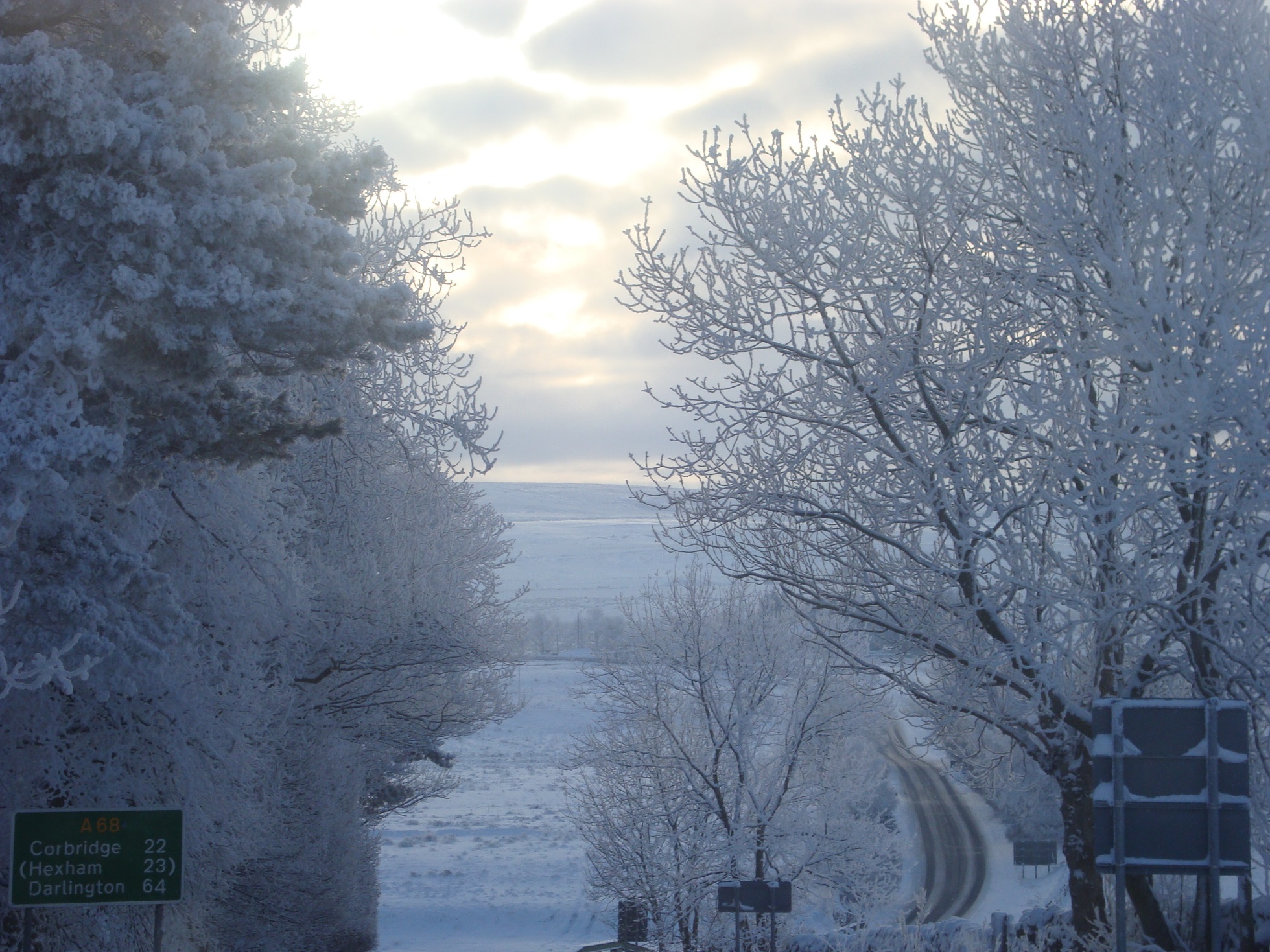
Return journey to a home that no longer exists 21st December 2010
Even the situation of Plague Island UK[xvii]– gathering extreme gravity if you believe the news – is unlikely to be stimulant enough to trigger more than the odd disorganised riot. The promises of an effective vaccine are likely a chimera that only desperation has made acceptable. Even resisting the satisfying paranoia of conspiracy theories, it’s convenient for our corrupt nadir of a government that COVID 19 and 20, 21 and 22, undoubtably stemming from our own incessant meddling and greed, came along just when it seemed that ecological groups, old and new, were gaining popularity and might have had some impact. Hopefully they still can. Saving the Earth can appear apolitical enough to gain support across the board, but down the line it’s obvious that long term life on the planet and Neoliberalism are absolutely antipathetic. The global corporations and the excessively rich have to go. It is their aspirational influence and example, their lack of conscience, that lies behind almost all our trouble.
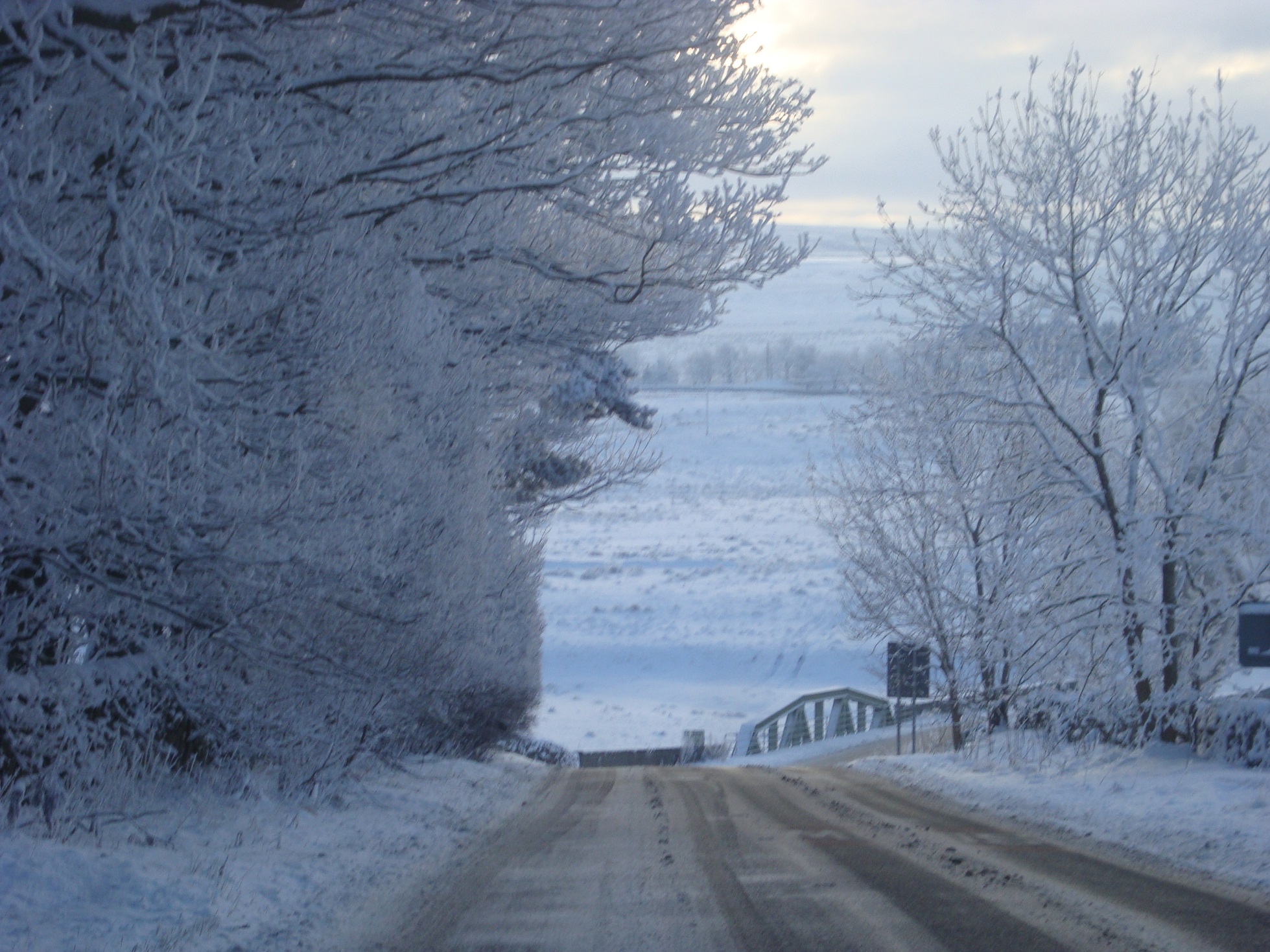
In an ideal world, if we could edit our possessions, I’d be happy to move every two or three years, partly because there are so many types of house I’ve never lived in, and so many areas to explore. Even moving within ten miles in an area where your key reference points might stay the same, can provide a huge change of angle.
Its clearly obvious that the more stuff you own, the more the stuff owns you. Yet it’s difficult to disown, especially the personal things, the photos and souvenirs of other times and places. Second-hand books for example, generally have no value anymore. Going to charity, before long they are liable to be pulped. It’s hard to give them away knowing this.
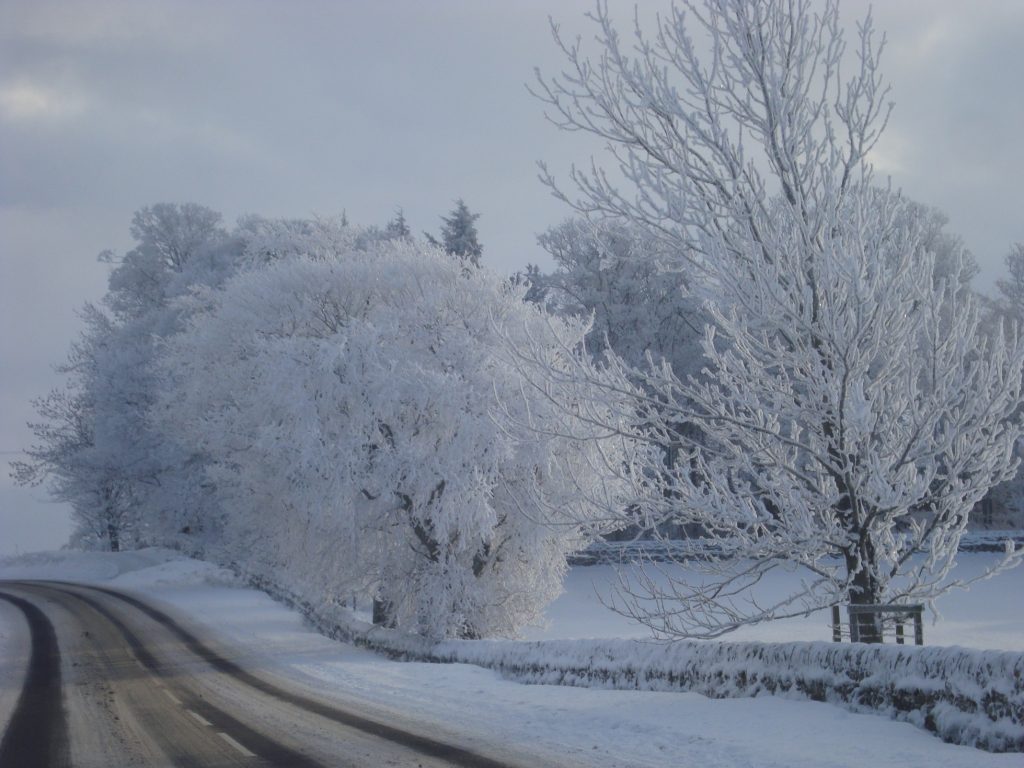
So, first we have to save the planet, and then, thoroughly restructure our society – reset its whole sorry table of values. As for “put them up against the wall and pull the trigger”, since I managed to avoid using the saying about rolling stones gathering no moss, I think I can resist voicing that primitive righteous urge. What is needed above all else is the rebirth of conscience.
© Lawrence Freiesleben,
Cumbria, January 2021
NOTES
[i] https://www.waterstones.com/book/municipal-dreams/john-boughton/9781784787400
[ii] Municipal Dreams by John Broughton, Page 219
[iii] Municipal Dreams by John Broughton, Chapter 4, The Needs of the People, pages 92/3. See also: https://www.theguardian.com/books/2018/apr/19/municipal-dreams-john-boughton-review
[iv] Free pheasant was a good winter supplement once the gamekeeper showed us how to deal with the victims. Most of the dead birds otherwise went uneaten – disgracefully shot merely for the ‘sport’. With the onset of corporate entertainment, the gamekeeper lived in constant anxiety for his beaters. Many of the ‘guests’ had never held a shotgun before, they were literally clueless and after lunch were drunk into the bargain . . .
[v] Which I had to tape shut to stop the children unscrewing them live.
[vi] https://www.imdb.com/title/tt0039420/ See also: http://internationaltimes.it/home-is-where-christmas-is/
[vii] On one night of driving rain I collected 14 gallons of water in buckets, until the wind shifted further north. It only needed a slight shift to the windowless side of the house to defeat the rain’s ingress.
[viii] https://www.independent.co.uk/news/hymn-not-so-wise-and-wonderful-1599499.html
[ix] Rather than the A1, I suspect it was the A68 John Buchan had in mind during the excellent car chase which occurs in the Lochinvar chapter of his adventure story, The Island of Sheep, (1936).
[x] A central element in both the Italian Digression and Home is Where Christmas Is?:
http://internationaltimes.it/home-is-where-christmas-is/
[xi] ‘Ingredients in a bowl of spiced punch with numerous, irreconcilable, elements’ – from Home is Where Christmas Is?: http://internationaltimes.it/home-is-where-christmas-is/
[xii] Not all landlords are parasites perhaps – only the majority.
[xiii] https://goodlawproject.org/
[xiv] https://www.imdb.com/title/tt0161191/
[xv] https://en.wikipedia.org/wiki/Shabby_Tiger
[xvi] Who deserve a 15% pay rise at the very least: “Claps don’t pay the bills!”
[xvii] www.theguardian.com/world/2020/dec/23/people-seem-more-afraid-life-on-plague-island-uk
